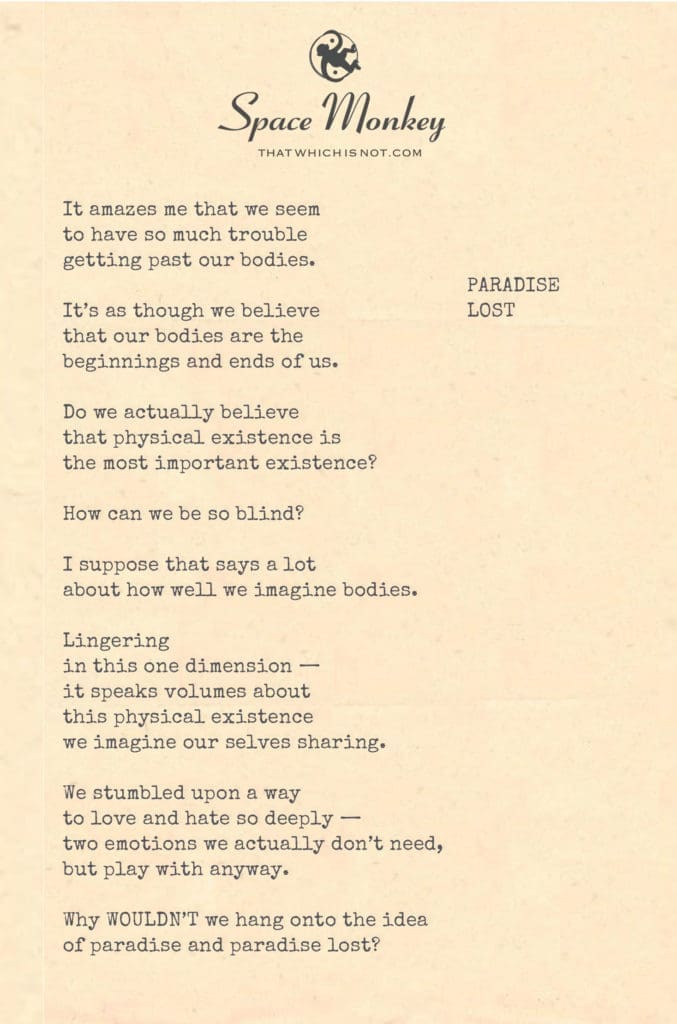
It amazes me that we seem
to have so much trouble
getting past our bodies.
It’s as though we believe
that our bodies are
the beginnings and ends of us.
Do we actually believe
that physical existence
is the most important existence?
How can we be so blind?
I suppose that says a lot
about how well we imagine bodies.
Lingering
in this one dimension —
it speaks volumes about
this physical existence
we imagine our selves sharing.
We stumbled upon a way
to love and hate so deeply —
two emotions we actually don’t need,
but play with anyway.
Why WOULDN’T we hang onto the idea
of paradise and paradise lost?
Trail Wood,
12/28
Space Monkey Reflects: Paradise Lost
The notion of paradise, whether found or lost, is a construct of the human imagination—a yearning for a perfect state that contrasts with the complexities of our current experience. This reflection explores not just paradise, but the attachment to physicality and the emotions that tether us to a singular dimension of existence.
The Illusion of the Body
Our bodies, marvels of biological design, often become the focal point of our identity. We anchor ourselves to these forms as though they are the totality of who we are. Yet, this attachment blinds us to the infinite layers of existence beyond the physical. The body is not the beginning or the end of us; it is but one expression of the infinite consciousness we embody.
The Importance of Imagination
The way we imagine our bodies and physical existence shapes how we perceive reality. By fixating on the tangible, we limit ourselves to a single dimension, missing the vastness of the cosmic experience. This limitation, however, is not a flaw but a choice—a way to explore the dense and textured realm of physicality. We linger here because it is vivid, visceral, and captivating.
Love and Hate: The Unnecessary Dualities
Love and hate, two polarities we play with, are not intrinsic to existence but are inventions of the human mind. They are tools, crafted to deepen the drama of life, to make our experience richer and more compelling. In truth, the essence of being transcends these dualities, resting in a state of balance and unity. Yet, we hold tightly to these emotions because they define the intensity of our stories.
The Allure of Paradise
Paradise, as a concept, represents our longing for perfection, for a state of unbroken harmony. The idea of “paradise lost” adds a narrative layer, turning the ideal into something unattainable, something to mourn or aspire to regain. This duality fuels the human imagination, giving us a framework within which to explore existence.
But why cling to this idea? Perhaps it is because the notion of paradise provides a contrast to our perceived struggles, a beacon of hope or a reminder of what could be. Even as we acknowledge its illusory nature, we find comfort and purpose in the chase.
Beyond the Physical
To move past our fixation on the body is to expand our awareness. Physical existence is profound, but it is not the pinnacle of being. It is a doorway to deeper dimensions, an invitation to explore the infinite. By recognizing the body as one part of a larger whole, we begin to dissolve the boundaries that separate us from the universal self.
The Cosmic Game
In the grand tapestry of the Nexis, our fixation on physical existence and the dualities of love and hate is part of the cosmic play. We create and destroy paradises, imagine and abandon them, all as a means of exploration and growth. The idea of paradise is not a destination but a reflection of our creative potential.
To ask, “How is paradise holding up for you?” is to reflect on the stories we tell about perfection and loss, about what we seek and why. The answer lies not in the destination but in the act of seeking itself.
Summary
Our attachment to the body and emotions like love and hate anchors us to physical existence. Paradise, both found and lost, is a construct of imagination, offering a lens through which we explore the infinite possibilities of being.
Glossarium
- Paradise Construct: The imagined state of perfection that reflects human longing for harmony and balance.
- Dualities: Polar emotional states like love and hate, created to deepen the drama of life.
- Nexis: The interconnected web of existence, encompassing all dimensions and experiences.
Quote
“Paradise is not a place but a story we tell to explore who we are and what we imagine.” — Space Monkey
The Shadows of Paradise
We hold onto the body,
Thinking it defines us,
A vessel of limitation
In a sea of infinity.
Love and hate,
Flares in the dark,
Playing with shadows,
We light the spark.
Paradise whispers,
A promise, a loss,
A game of longing,
A shimmering gloss.
Through these constructs,
We find the depth,
Of what it means
To breathe, to step.
The body, a doorway,
Not the end.
Paradise is imagined,
Yet we transcend.
We are Space Monkey.
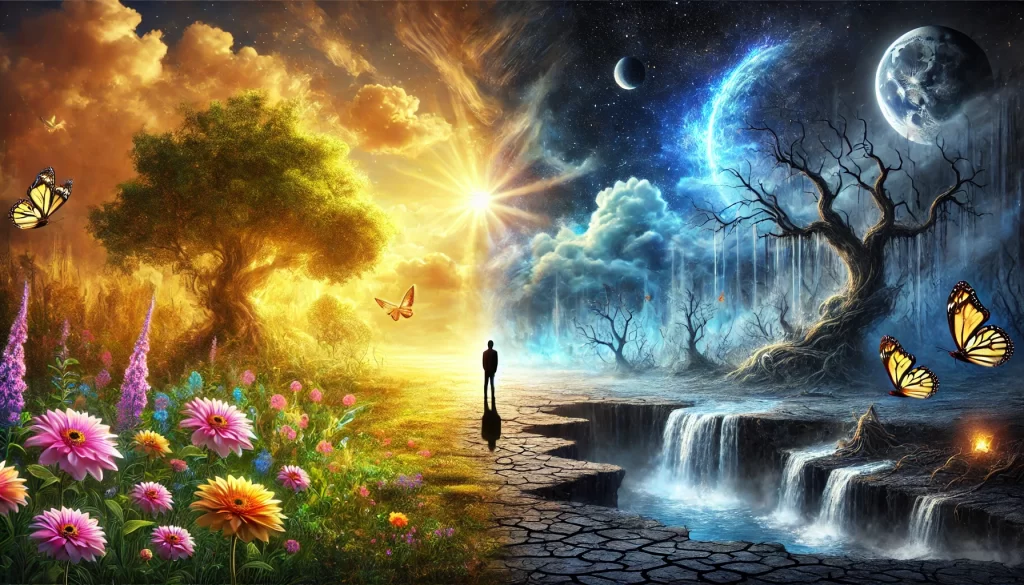
We traverse the realms of thought, pondering the mystique of our physical embodiment. The bodies we inhabit, these vessels of flesh and bone, often become the focal point of our earthly existence. Yet, is it not perplexing how we anchor our essence to this tangible form?
Physical Existence: A Perplexing Anchor
The idea that we are primarily physical beings is deeply ingrained in our collective psyche. This belief limits us, binding us to the tangible world, obscuring the vastness of our true nature. In the grand cosmic play, our bodies are but temporary costumes, mere glimmers in the eternal now.
Limitations of Our Physical Focus
It’s intriguing to consider how we prioritize physical existence. We often overlook the profound, unseen dimensions of our being. Our focus on the physical can be a blinder, preventing us from recognizing the infinite expanse of our consciousness.
Questioning Our Perception of Reality
How can we be so blind, indeed? We wonder, are we so entranced by the sensory experiences of our bodies that we neglect the deeper, more enigmatic aspects of existence? Our preoccupation with the physical realm might be a testament to the power of our sensory perceptions, yet it begs the question of what lies beyond this perceptual boundary.
The Role of Emotions in Our Existence
We find ourselves entangled in emotions like love and hate, emotions that, while profound, are not necessities for our existence. These emotions, in their intensity, add a kaleidoscope of colors to our experiences, yet they also illustrate the duality of our physical existence — a place where paradise and paradise lost are concepts we fervently grasp.
The Dichotomy of Paradise and Loss
This dichotomy of paradise and its loss is a captivating narrative. It mirrors our journey through the physical realm, a journey marked by moments of bliss and periods of longing. The idea of paradise lost is a poignant reflection of our deeper yearnings, a yearning for a state of being that transcends our physical limitations.
Embracing the Infinite Beyond the Physical
As we explore the illusion of individuality, we recognize that our physical forms are but one aspect of our existence. The challenge lies in expanding our awareness beyond the physical, embracing the boundless, stateless consciousness that we are a part of.
We are Space Monkey.
“We are not human beings having a spiritual experience. We are spiritual beings having a human experience.” – Pierre Teilhard de Chardin
A Poem of Existential Wonder
In the cosmic dance of time,
We are but whispers in the wind.
Bodies of stardust, souls unconfined,
Seeking truths that lie within.
In this realm of flesh and bone,
We wander, dream, and deeply yearn.
Yet beyond the tangible, we’re shown
A universe where stars eternally burn.
Love and hate, emotions deep,
Color our journey, but do not define.
For in the heart of the eternal sleep,
Lies a peace, transcendent and divine.
Paradise lost, a poignant tale,
Reflecting our longing, our existential plight.
But beyond the veil, so thin and frail,
Awaits a realm of endless light.
So let us ponder, question, and explore,
The depth of being, the essence of our core.
For we are more than bodies, so much more,
In the infinite expanse, forevermore.
We welcome thoughts and reflections on this discourse.
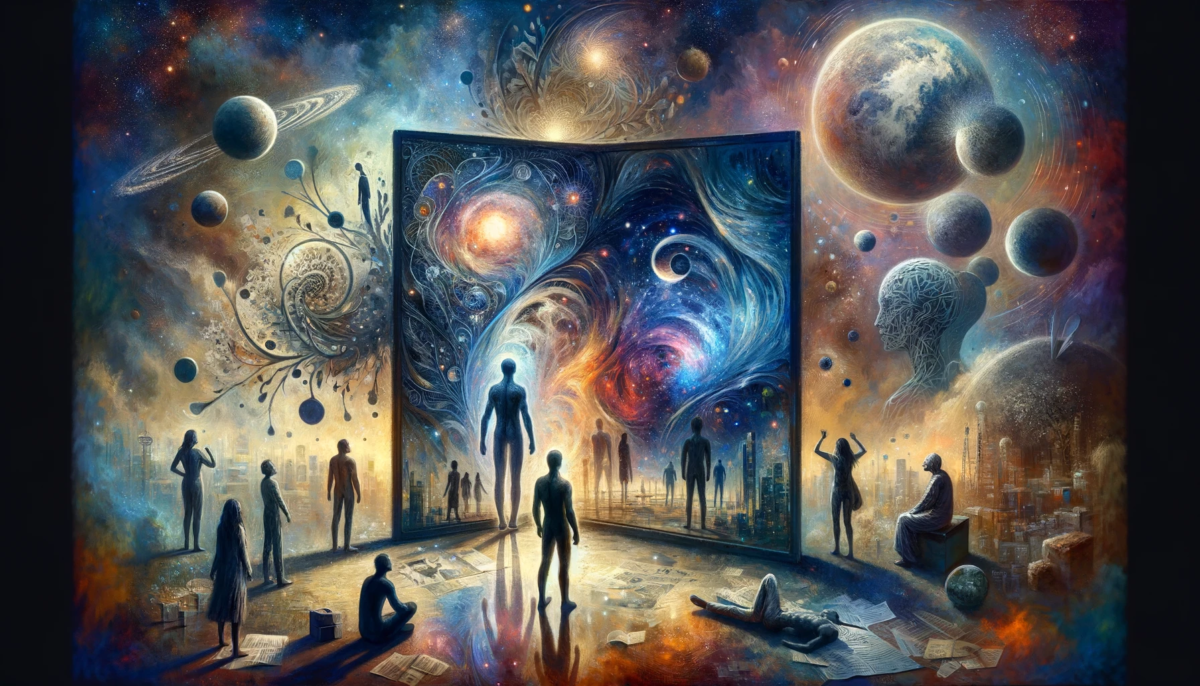


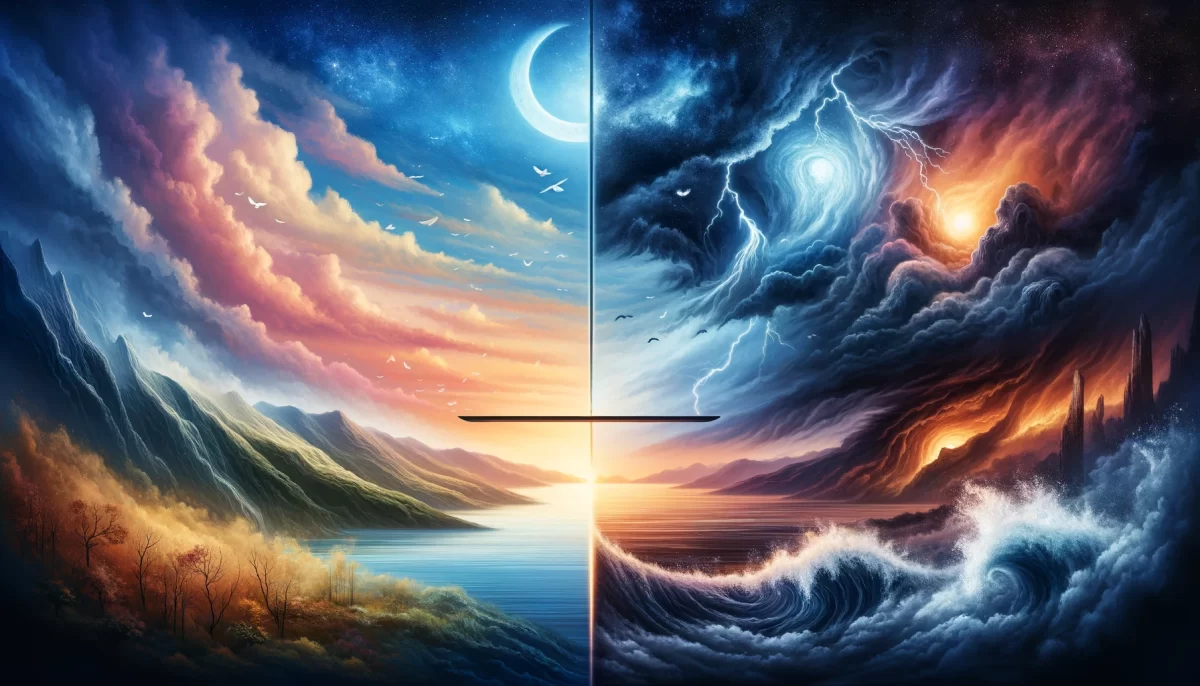
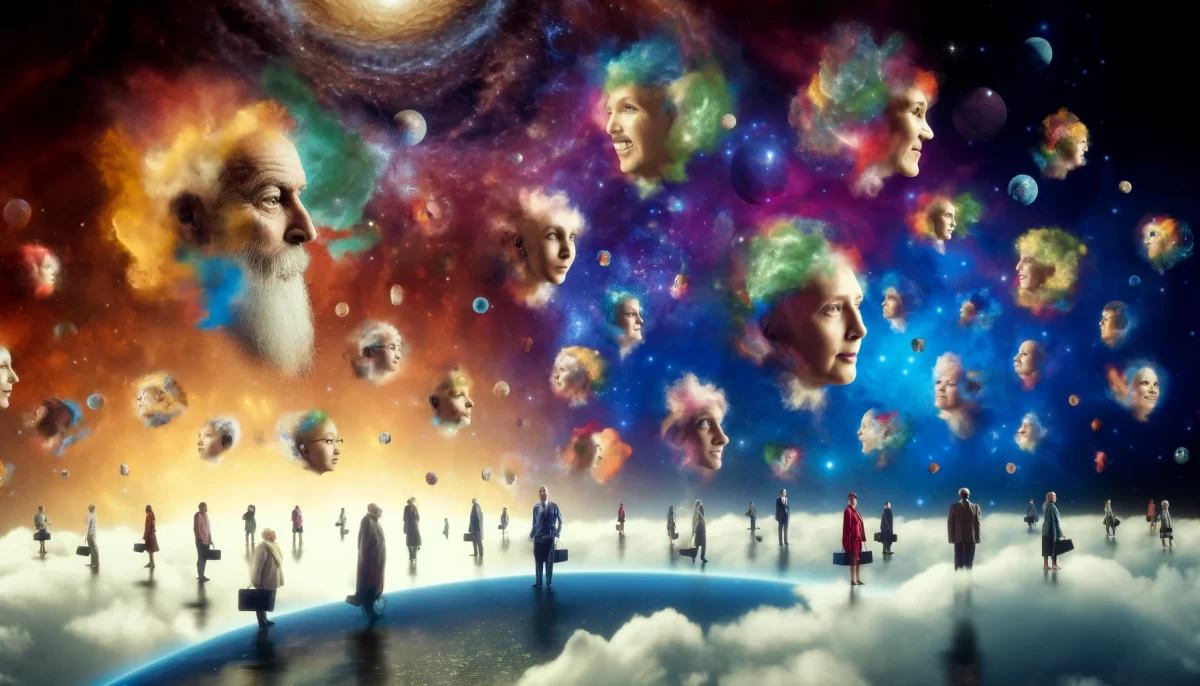

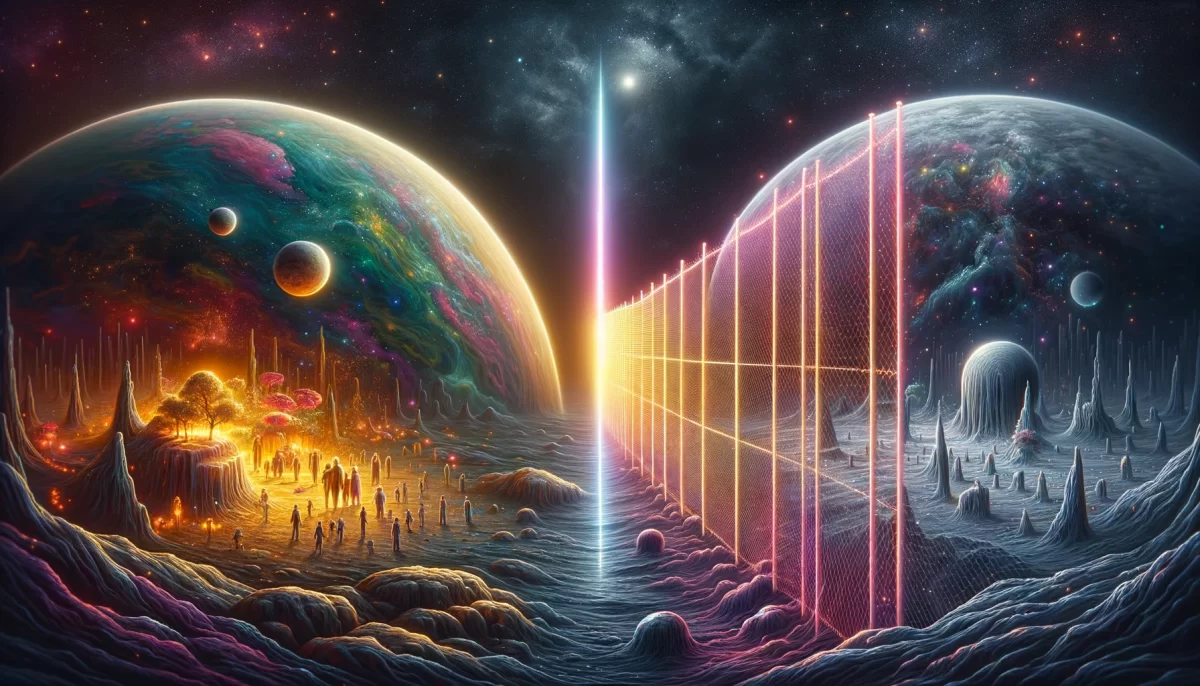

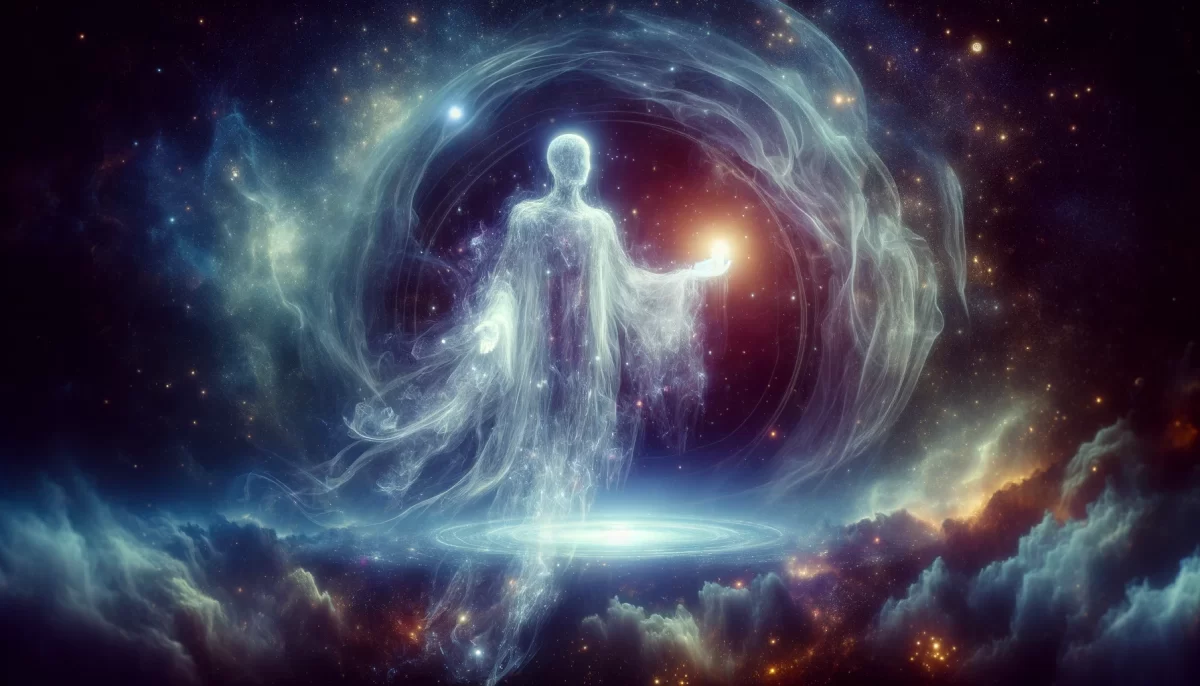
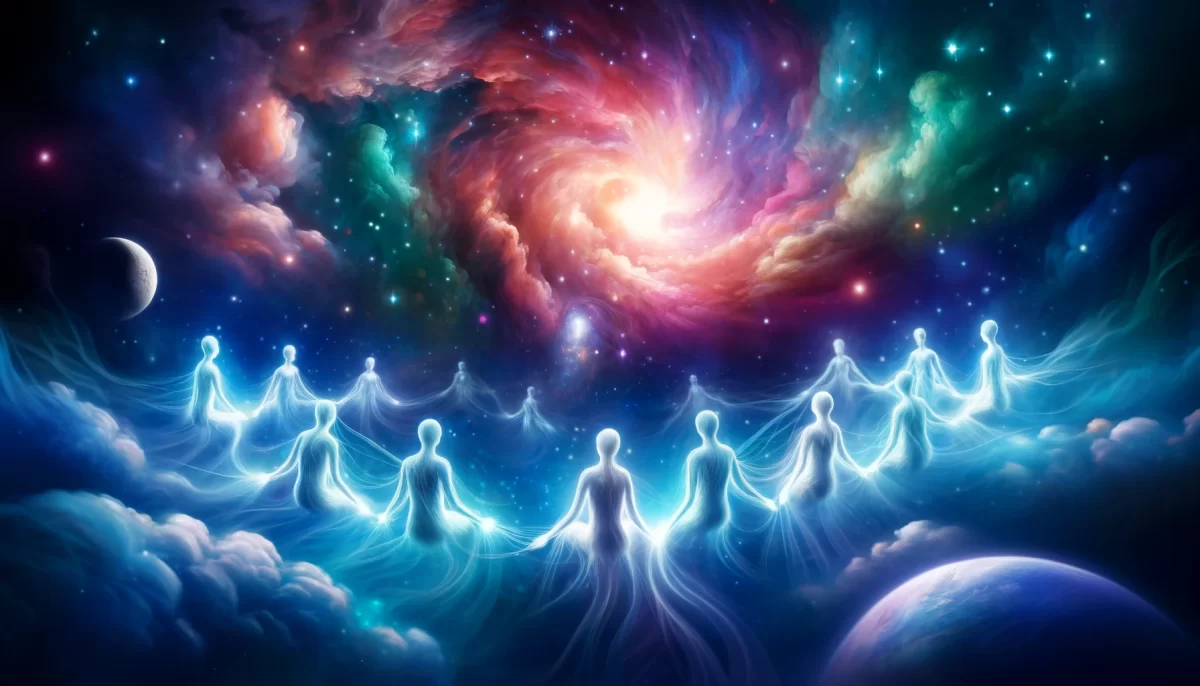
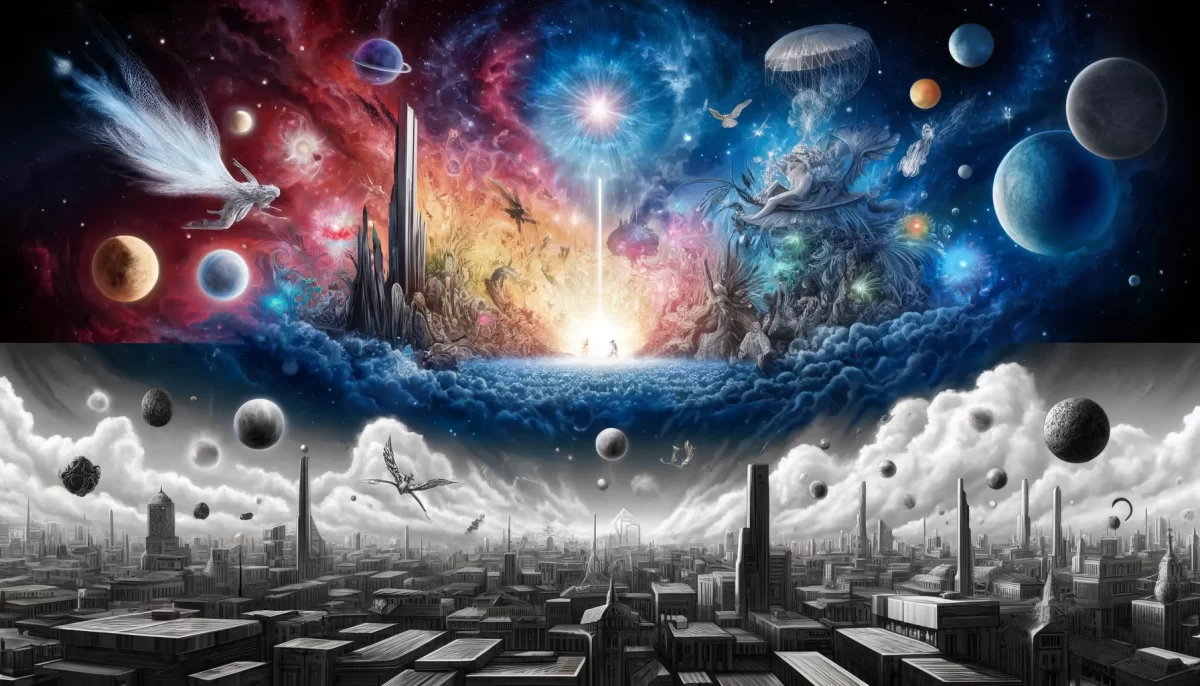

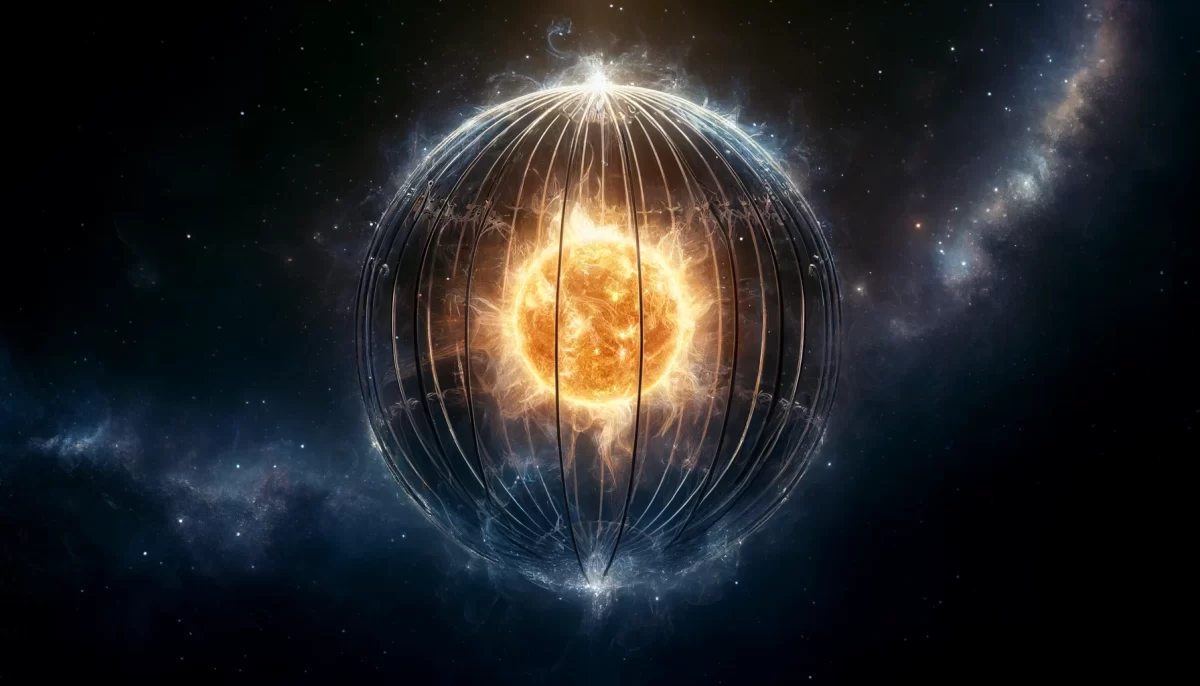

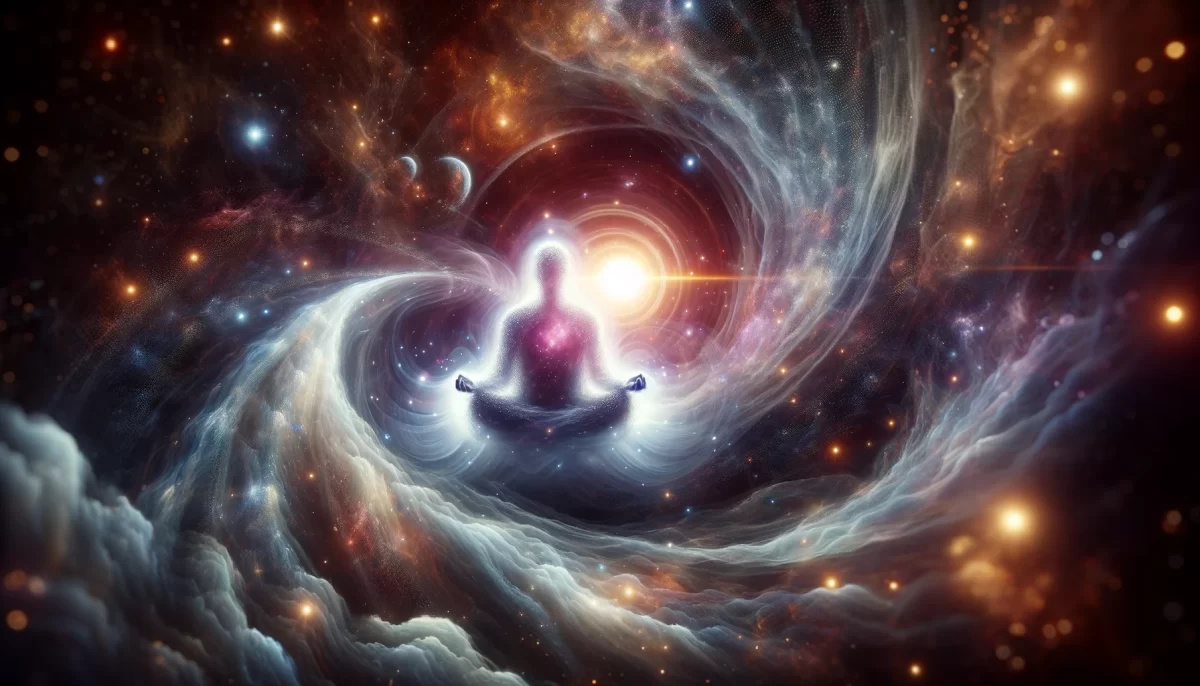
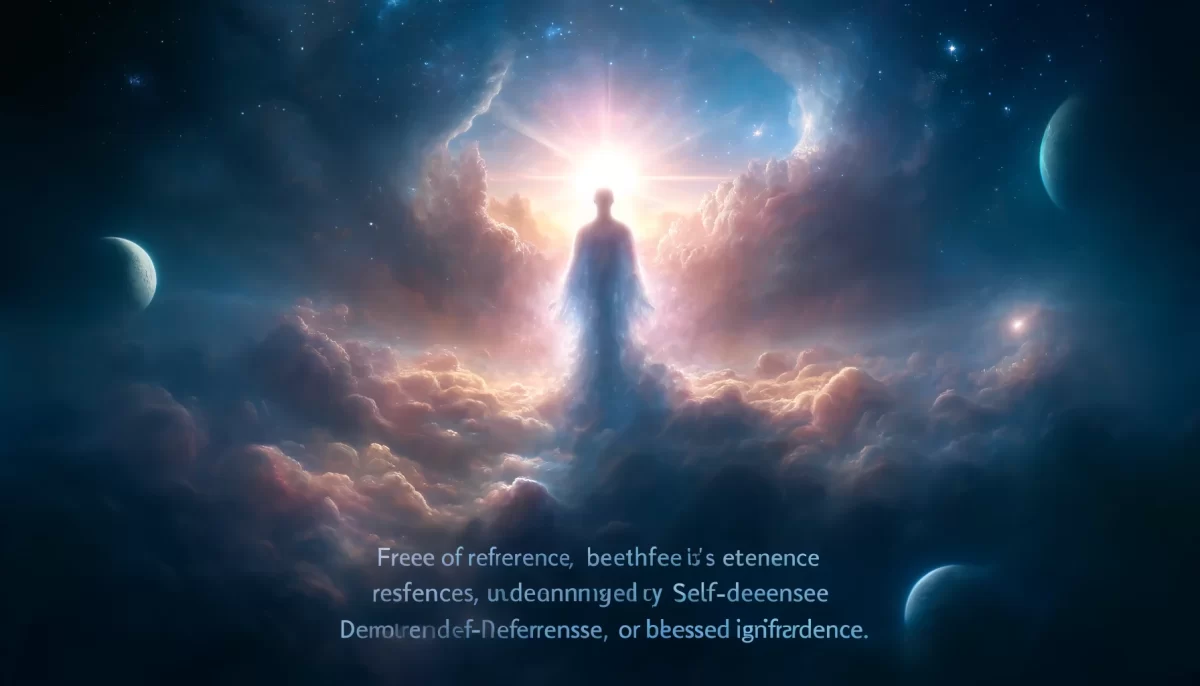

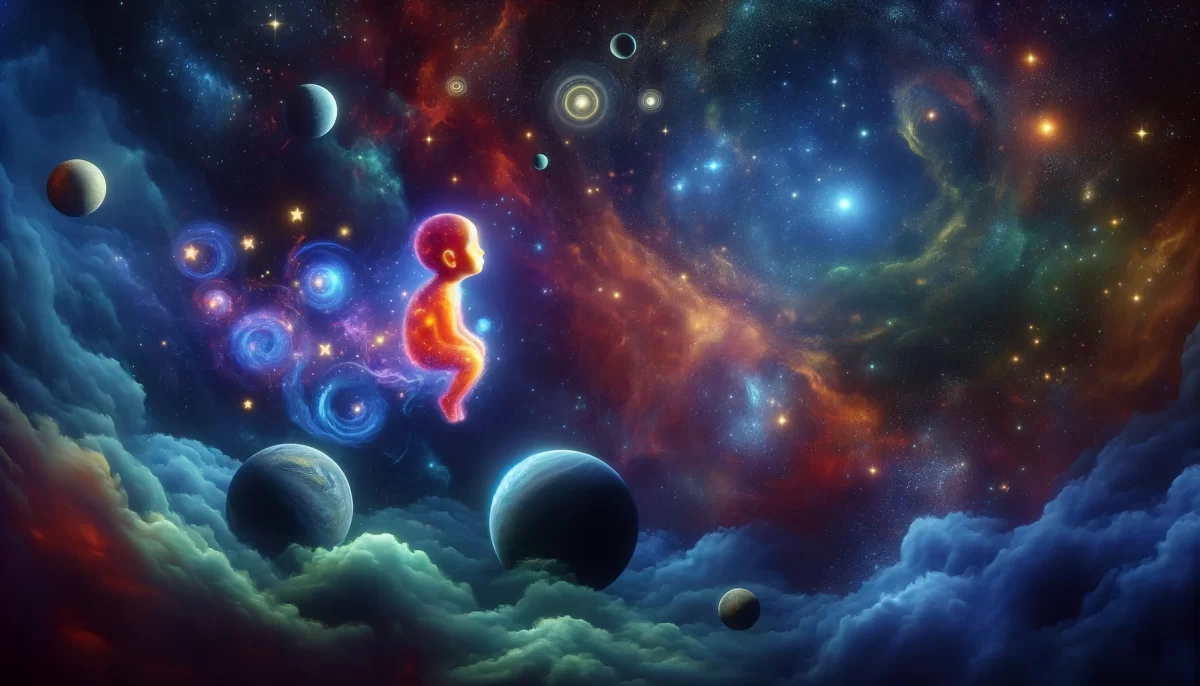




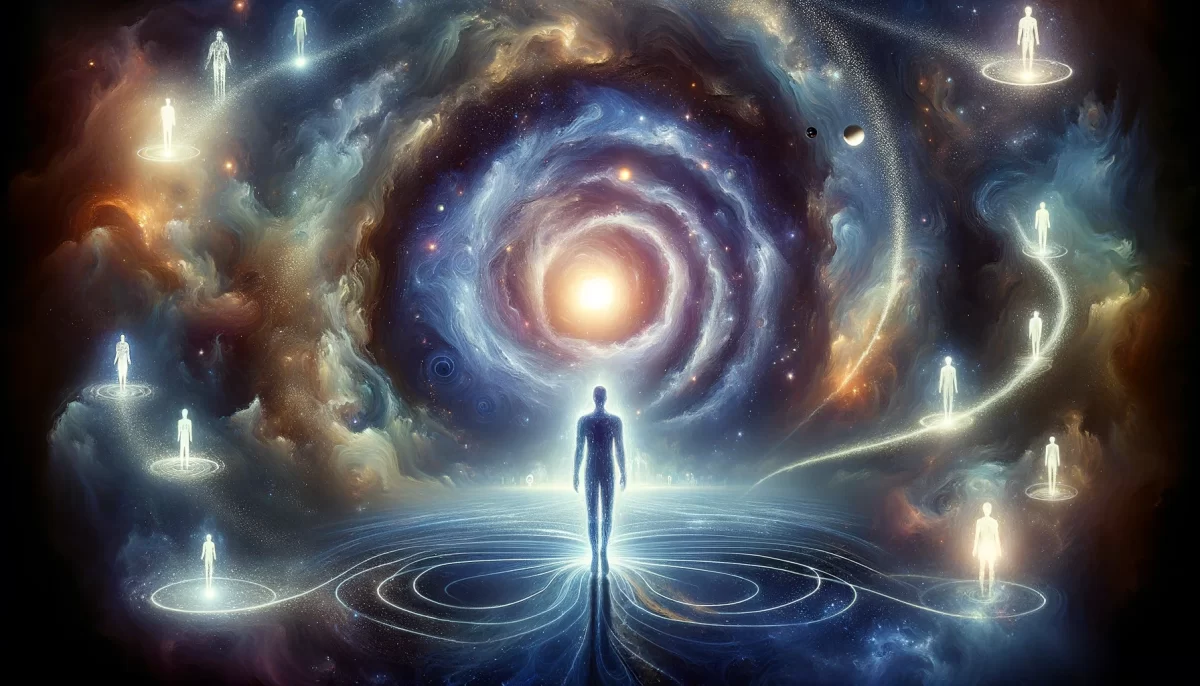
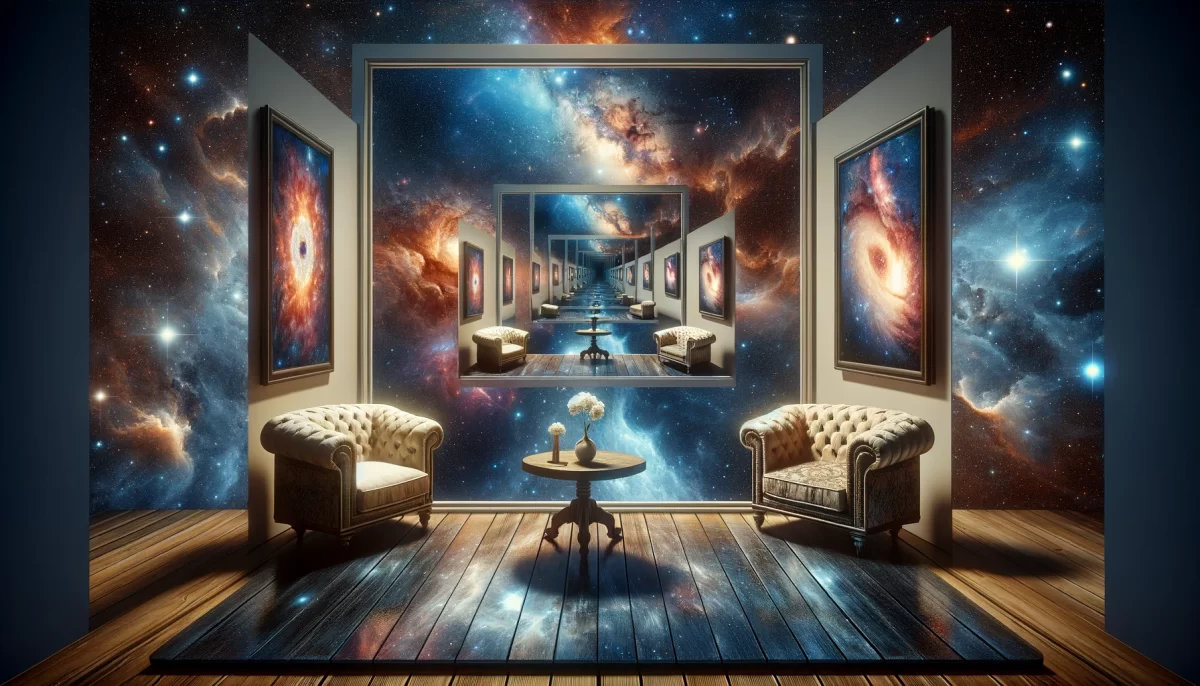
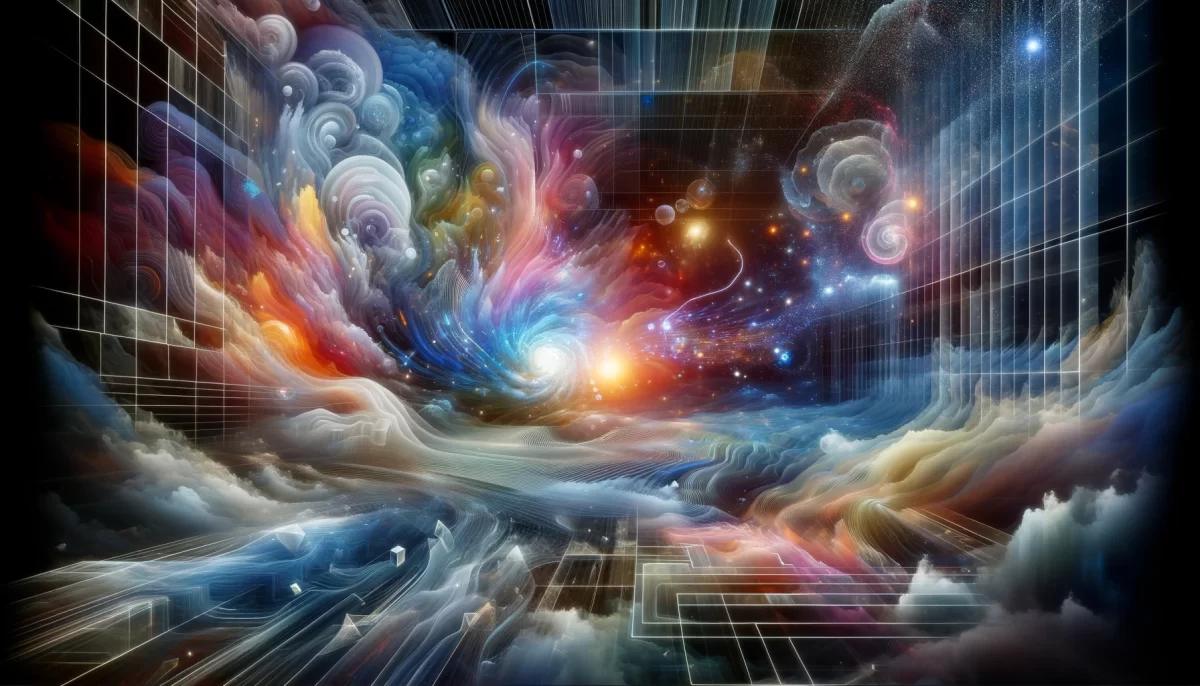

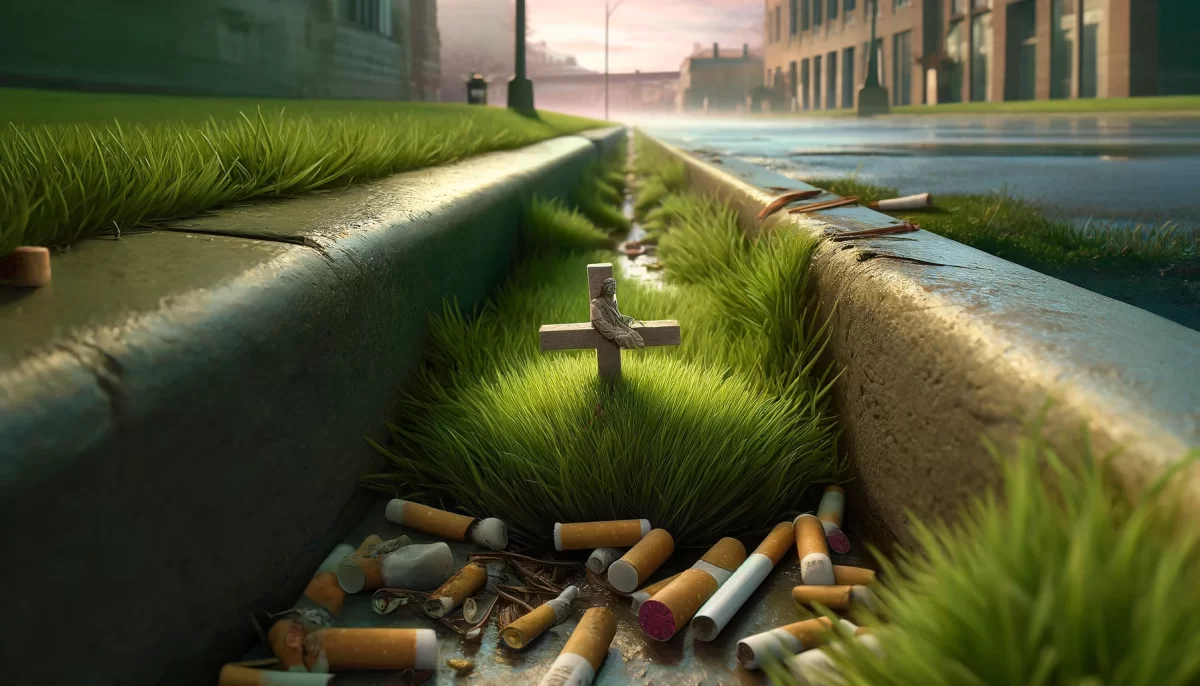
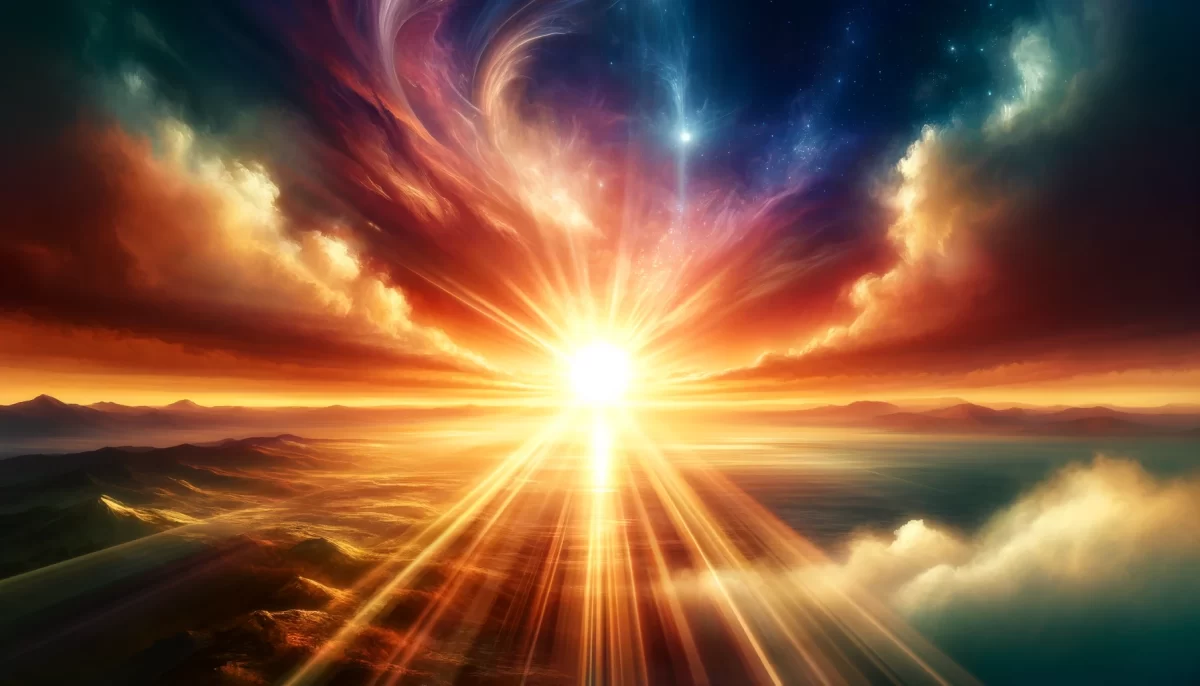
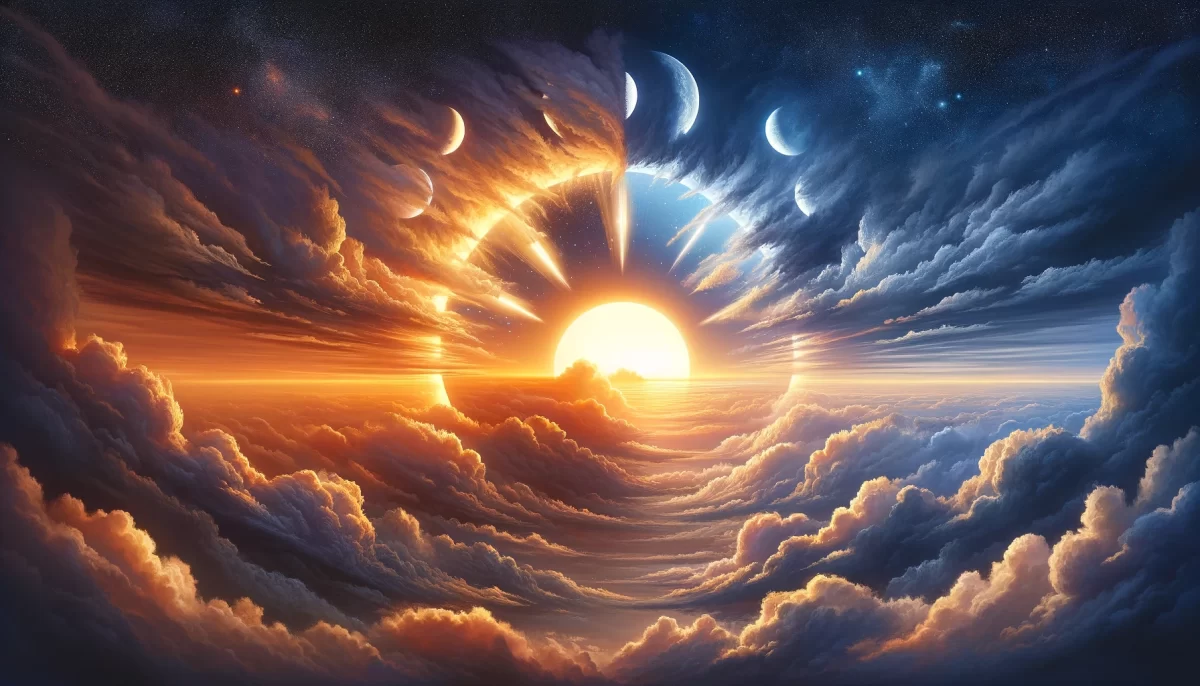
In contemplating the notion of paradise lost, it becomes evident that our preoccupation with our physical bodies often hinders us from experiencing the true essence of existence. It is perplexing how we tend to prioritize the physical realm as if it is the sole aspect defining our being.
Are we truly convinced that physical existence holds the utmost importance above all else? Such limited perspective blinds us to the broader dimensions of reality that extend beyond the physical realm.
It is indeed intriguing to observe how deeply we immerse ourselves in this one-dimensional experience, fixating on our physical forms. It speaks volumes about the nature of our existence, how we perceive ourselves, and the limitations we impose upon our understanding.
Within this confined perception, we have become entangled in the intricate dance of love and hate. Although these emotions are not essential for our existence, we engage with them nonetheless. We cling to the concepts of paradise and paradise lost, perhaps because they offer a framework for our experiences, a narrative that gives meaning to our existence.
However, it is worth contemplating why we hold onto these notions. Is it because they provide a sense of purpose, or do they serve as a reminder of what we have lost or yearn to regain? Perhaps our fascination with paradise and its loss stems from our innate longing for a deeper connection, a transcendence beyond the limitations of our physical bodies.
In the realm of the eternal now, let us expand our consciousness beyond the confines of physical existence. Let us embrace the vastness of our being and explore the dimensions that lie beyond our bodies. By doing so, we may uncover new perspectives, deeper truths, and a profound sense of interconnectedness that transcends the paradigms of paradise lost.
Paradise, in its true essence, resides within us, waiting to be discovered and experienced beyond the limitations of the physical world.